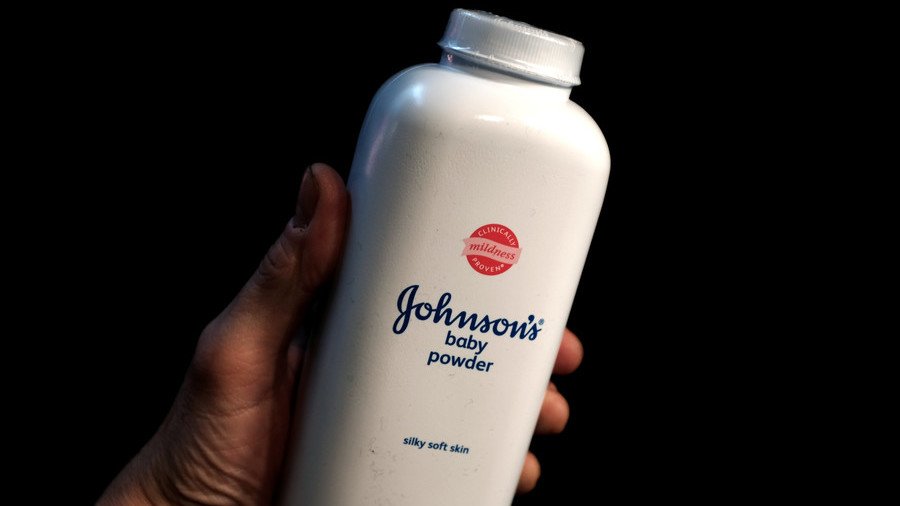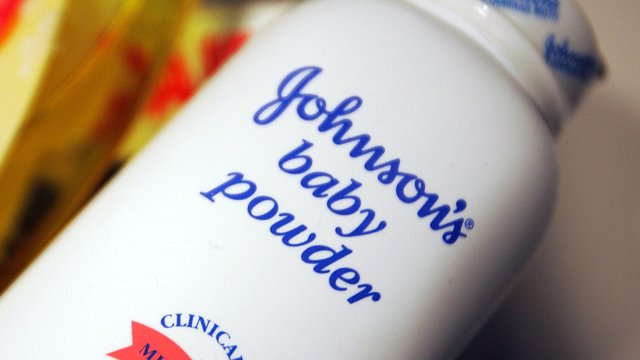It hasn’t exactly been a great week for companies who have been dragged into lawsuits over claims that their products are cancer-causing.
Johnson and Johnson, often considered a harmless brand, is associated with children’s bath time and its talcum powders have become a household staple around the globe.
But a shocking number of women have come forward with claims that the brand’s talcum products have caused their ovarian cancer – and now the court has ruled against the company’s favor, ordering it to pay $4.6 billion in damages to the cancer victims.

On Thursday, Johnson & Johnson was ordered to pay $4.6 billion in damages to 22 women who claimed that the company’s talcum powder had caused their ovarian cancer
Companies in Trouble
On Thursday, Johnson & Johnson lost its biggest joint lawsuit to date and was ordered to pay $4.6 billion in damages to 22 women who claimed that the company’s talcum powder had caused their ovarian cancer.
On Tuesday verdict from a different lawsuit put an agrochemical company named Monsanto in trouble after a federal judge in California ruled that the main ingredient, glyphosate, in its weed killing products was linked to non-Hodgkin’s lymphoma.
However, many cancer experts disagree with both verdicts, saying that there is no concrete proof that either glyphosate or talc powder is carcinogenic. But despite there being no scientific evidence behind the victims’ claims, the jury in both lawsuits decided to rule against the companies’ favor. Even after paying off the damages, trouble is far from over for both Johnson & Johnson and Monsanto who are continuously fighting off lawsuits from more and more cancer victims.
A Weak Case
The truth is that finding the cause of cancer in the world we live in today can be next to impossible. Of course, there are certain cancers which are indisputable such as lung cancer which is known to be caused by smoking and cervical cancer almost always caused by a specific kind of viral infection.
American Cancer Society’s vice president Susan Gapstur says that there are so many risk factors today which contribute towards an increased risk of developing cancer, with smoking, obesity, alcohol, exposure to sunlight and HPV (human papillomavirus) only to name a few.
HPV is a known carcinogen which triggers almost every case of cervical cancer and is also a cause of several other penile, neck and head cancers. The reason why HPV is considered an incontestable carcinogen is because several studies have showed in the past people who have the viral infection are at higher risk of developing cancer than those who aren’t infected.
Scientists have also reported several instances where the virus has caused damage in the tumors. Gapstur says that in the case of HPV, the information is too accurate to be contested but when it comes to lesser known substances like talcum powder and weed-killing products, it becomes tricky to determine whether any exposure can cause cancer.
Asbestos in Talcum Powders
The American Cancer Society’s website offers detailed information on various after-shower and baby powders and whether they can be linked to serious diseases like cancer. The website explains that the suspicious element in talc products is asbestos, which may or may not be present in a certain powder depending on its brand.
Powders containing asbestos have been considered carcinogenic by several scientists who claim that inhaling the chemical can cause cancer. But asbestos is rarely used in modern-day consumer products, although there is very little evidence about the role of asbestos-free talcum powders in causing cancers.

Johnson & Johnson is currently facing over 3,000 lawsuits involving its signature baby talcum powders
$4.7 Billion Damages
The jury for Johnson & Johnson initially ordered the company to pay $550 million in compensation but later added another $4.1 billion to cover punitive damages. The pharmaceutical giant is currently facing over nine thousand lawsuits around the United States, all of which involve its signature baby talcum powders, and the latest verdict means that more bad news awaits the company in future.
Of the 22 women who were represented in the case, 6 died of ovarian cancer before the jury announced its verdict. Almost all women said that they had been using Johnson & Johnson’s baby talc products for years before developing the cancer. The lawyers representing the plaintiffs said that the company knew that its talc products were carcinogenic since the 1970’s but failed to change its formula or warn their consumers about the risk of using the powders.
However, Johnson & Johnson argued that its products are free of asbestos and hence do not cause cancer. Scientists also argue that a rare cancer like ovarian often has a number of risk factors including genetic and environmental, which is why simply placing the entire blame of talcum powder without sufficient evidence is wrong.










